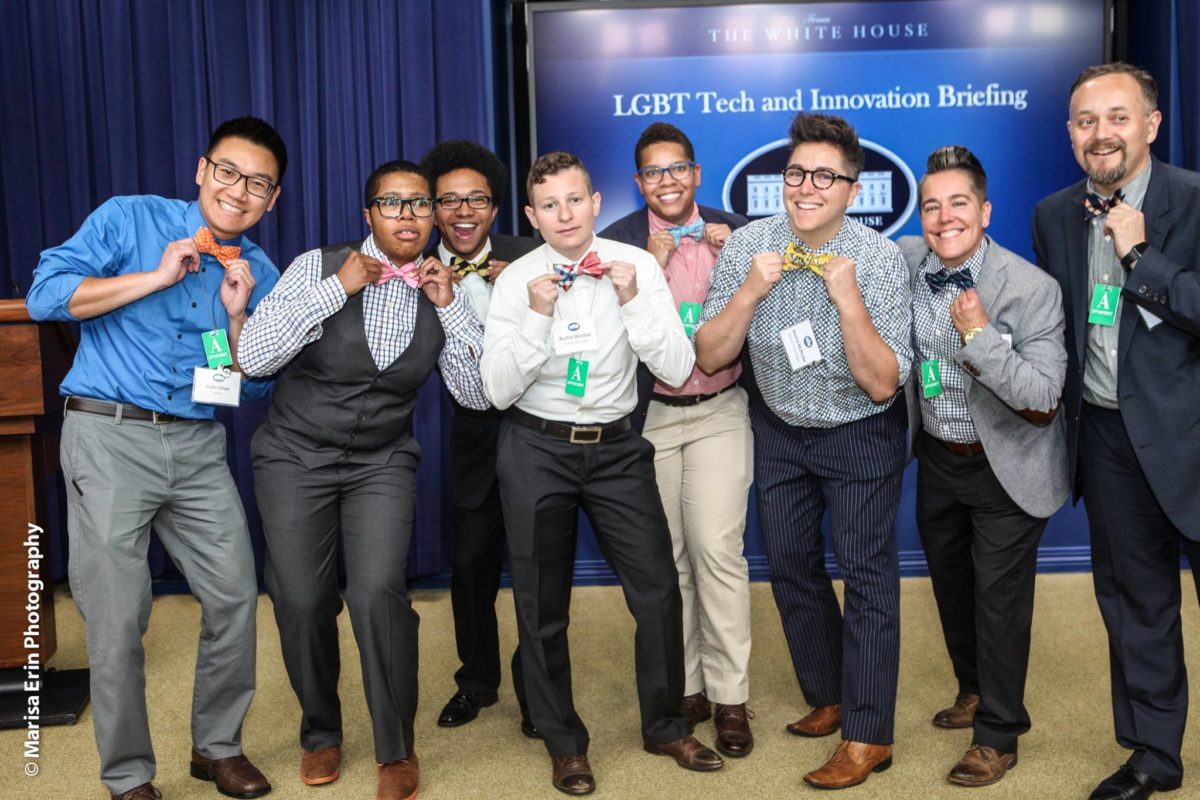After spending much of her twenties working in politics, Joy Whitt applied for her first tech job last year.
When her interviewer asked her whether she wanted to end up in tech or social justice, Whitt answered: “Both.”
For Whitt, a Black queer woman who’s passionate about increasing diversity in the tech scene, balancing the two is paramount.
“It doesn’t matter where I end up, or how I end up doing it,” Whitt, 30, told us over the phone. “I want to be just as good at both.”
One way the Trinidad resident does that is through her job as a program analyst for the District’s Deputy Mayor’s Office of Planning and Economic Development, an office that she said is focused on affordable housing, increasing jobs and increasing the tax base. She’s also a co-organizer of Tech Lady Hackathon and last month, she was invited to the White House’s LGBTQ Tech and Innovation Summit, where attendees brainstormed ideas for TechUP’s Innovation + Inclusion Week this fall.
https://twitter.com/joymwhitt/status/768223642622844928
Whitt’s journey into the tech scene begins with Tech Lady Hackathon, the event founded by former Code for DC co-captain Leah Bannon. It was 2014 and she found the hackathon because it was taking place in her office building. Whitt was working for the American Medical Association’s PAC, housed in the same building as Google’s D.C. office, which was hosting Tech Lady Hackathon.
At the time, Whitt was unhappy working at the PAC. She found that she didn’t like the projects or the conservative office environment. It was Tech Lady Hackathon that inspired her to learn to code and introduced her to the supportive D.C. tech scene.
“I got here because I though I could use tech as a tool,” she said, “but I stayed because of the inclusive community.”
Whitt learned to code with help from Hear Me Code’s free classes and fellow social justice-minded technologist Aliya Rahman. (“I don’t think I’ve even been taught a line of code by a man,” she said.) It wasn’t all easy, though.
“I didn’t even write a single line of code until the summer of 2014,” Whitt said. “I just had no interest in the tech field. I was under the impression that you were born with that skill, or you weren’t.”
Whitt described her job search as a “huge struggle.” It meant learning several programming languages in a year. Even with help from others in the scene, it still took her over 20 job applications to find work.

Tech Lady Hackathon inspired Joy Whitt to start coding and now she’s a co-organizer of the event. (Courtesy photo)
And she has some advice for companies struggling to find diverse employees like herself.
“No one wants to be your token,” she said. “No one wants to be your experiment.”
She suggested companies identify good diversity models and host events that invite people who are underrepresented in tech.
“The most successful events are really informal,” she explained. “Show how you cool you are by giving everyone space and sitting back and listening.”
Most importantly, Whitt stressed that companies must be willing to invest in the labor that it takes to build a diverse staff.
“People have decided it’s a good decision to pay a lot of money for tech work,” she said. “But social justice is still considered free labor, [considered to be] done out of the goodness of your heart.” She said it’s important to remember that people don’t work for free.
Join our growing Slack community
Join 5,000 tech professionals and entrepreneurs in our community Slack today!
Donate to the Journalism Fund
Your support powers our independent journalism. Unlike most business-media outlets, we don’t have a paywall. Instead, we count on your personal and organizational contributions.

National AI safety group and CHIPS for America at risk with latest Trump administration firings

How women can succeed in male-dominated trades like robotics, according to one worker who’s done it

Geomapping goes splat: The evolving future of Google Earth

